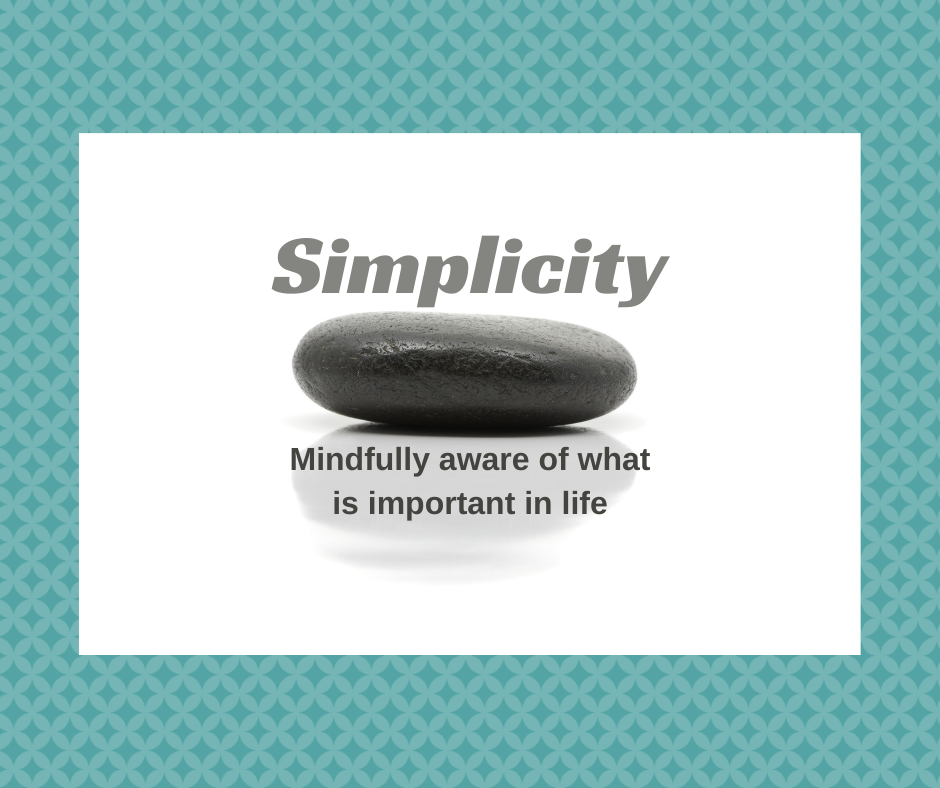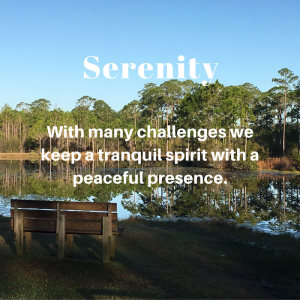
Sincerity
Description

Sincerity is the virtue of being authentic, a trait that radiates a sense of trustworthiness and integrity in every area of life. When we practice sincerity, we speak and act from a place of honesty and transparency, allowing others to see our genuine intentions and true selves. Our actions align with our words, creating a consistent, reliable presence that people can trust.
When we are sincere, we don’t feel compelled to impress others or put on a facade; rather, we offer ourselves openly, free from pretense or hidden agendas. This purity of intention shines through in our interactions, as we give of ourselves not to seek approval but to bring goodness to those around us. Sincerity invites a deeper connection with others, fostering relationships built on mutual respect and honesty.
By living sincerely, we remind ourselves and those around us that there is strength in simply being who we are. This virtue encourages authenticity in all we do, making it a foundation for a life marked by trust, openness, and a heart that seeks to give freely.
Affirmations for Sincerity
1. I speak honestly, with kindness and clarity.
This helps align words with inner truth, fostering authentic, compassionate communication.
2. I honor my values and let them guide my actions.
Staying true to one’s values strengthens the habit of sincerity, as actions naturally reflect what matters most.
3. I allow myself to be vulnerable and real with others.
Embracing vulnerability breaks down the walls of pretense, allowing for deeper, more genuine connections.
4. I am enough, exactly as I am.
This affirmation helps to release any need to impress or seek approval, embracing authenticity.
5. I take responsibility for my words and actions.
Accepting responsibility encourages truthfulness and integrity, creating a foundation of trustworthiness.
6. I give from my heart without expecting anything in return.
Practicing sincere giving nurtures the habit of giving freely, with no ulterior motives.
7. I listen with openness and respect, honoring each person’s truth.
This practice encourages humility and sincerity in interactions, valuing each person’s perspective.
8. I let go of any need to exaggerate or embellish my story.
Practicing honesty in self-expression promotes trust and reinforces one’s commitment to authenticity.
9. I take a moment to reflect on my intentions before I speak or act.
A brief pause to check intentions ensures actions come from a place of truth rather than ego.
10. I trust that being my true self is the greatest gift I can offer.
This affirmation reinforces the idea that sincerity creates genuine connections and lasting respect.
Quotes
“Sincerity is the highest compliment you can pay.” — Ralph Waldo Emerson
“To believe in something, and not to live it, is dishonest.” — Mahatma Gandhi
“The superior man is modest in his speech, but exceeds in his actions.” — Confucius
Sincerity In Family Life
Nurturing sincerity in family life begins with creating an atmosphere of trust where each family member feels valued and safe to be themselves. Sincerity is cultivated through honest and kind communication, where words match actions and intentions are clear. When sincerity is expressed in the family, it brings a sense of security, as everyone can rely on one another to be genuine and truthful.
Parents can nurture sincerity by modeling open communication and being honest about their thoughts, feelings, and mistakes. This openness teaches children that sincerity is not about perfection but aligning our words and actions with our inner values. When parents admit mistakes or acknowledge when they don’t have all the answers, they show their children that being sincere includes humility and self-acceptance.
Encouraging children to speak openly without fear of harsh judgment is also key to fostering sincerity. Family members can make it a habit to listen attentively to each other and respond with understanding rather than criticism. This helps children learn that sincerity is welcomed and respected in their home, reinforcing their confidence in being genuine.
Families can also practice sincerity by emphasizing the importance of keeping promises, expressing gratitude authentically, and encouraging each person to share their thoughts and ideas honestly. Simple acts like saying what we truly mean, following through on commitments, and giving from the heart with no strings attached reinforce sincerity as a way of life.
In nurturing sincerity, families create a lasting bond built on honesty, trust, and mutual respect. This strong foundation encourages each family member to grow with integrity, grounded in knowing they are loved and valued for who they indeed are.
Balancing Sincerity
When balanced, sincerity becomes a powerful force in family life, fostering trust, openness, and genuine relationships. However, sincerity is most beneficial when accompanied by other virtues that prevent it from becoming overly blunt or hesitant. By nurturing complementary virtues, sincerity can remain a positive and constructive influence within the family.
Balancing Virtues:
-
-
-
Compassion: Compassion helps us express sincerity with kindness, ensuring honesty does not come across as harsh or insensitive.
-
Discernment: Discernment guides us to choose the right time and manner to express truth, helping sincerity to be received openly rather than defensively.
-
Humility: Humility keeps sincerity grounded, reminding us to be open to others’ perspectives and admit when we might not have all the answers.
-
Patience: Patience ensures that sincerity respects others’ readiness to hear and respond, allowing time for deeper understanding.
-
Respect: Respect helps sincerity align with the dignity of others, ensuring that honesty never undermines mutual regard within the family.
-
Empathy: Empathy balances sincerity by encouraging us to consider others’ feelings and experiences, creating an atmosphere of safe and understanding communication.
-
Courage: Courage empowers us to be sincere even in challenging situations, preventing us from shrinking away from truth when it is needed most.
-
Self-Discipline: Self-discipline helps us pause and reflect, ensuring that sincerity does not lead to impulsive words or actions.
-
Gratitude: Gratitude keeps sincerity positive by focusing on what we appreciate, allowing truthfulness to uplift rather than criticize.
-
Forgiveness: Forgiveness allows sincerity to coexist with understanding, helping us to address issues truthfully while remaining willing to let go of past mistakes.
-
-
In family life, maintaining a balance of virtues allows sincerity to flourish in ways that strengthen bonds, build mutual respect, and promote open, honest communication. When sincerity is supported by these virtues, it becomes a source of trust and growth, creating a nurturing environment where both parents and children feel safe, valued, and genuinely connected.
Joe is a husband, father, grandfather, author, speaker, educator, course creator, and parent/family coach.
He helps parents develop unity, find clarity, communicate, and develop consistency in their parenting with the Four C’s of Successful Families. You can find his work on social media.
In addition, the Four C’s newsletter is enjoyed by many as it encourages parents to self-care, build their relationships with their partners, and raise their children.
And he loves to golf!




